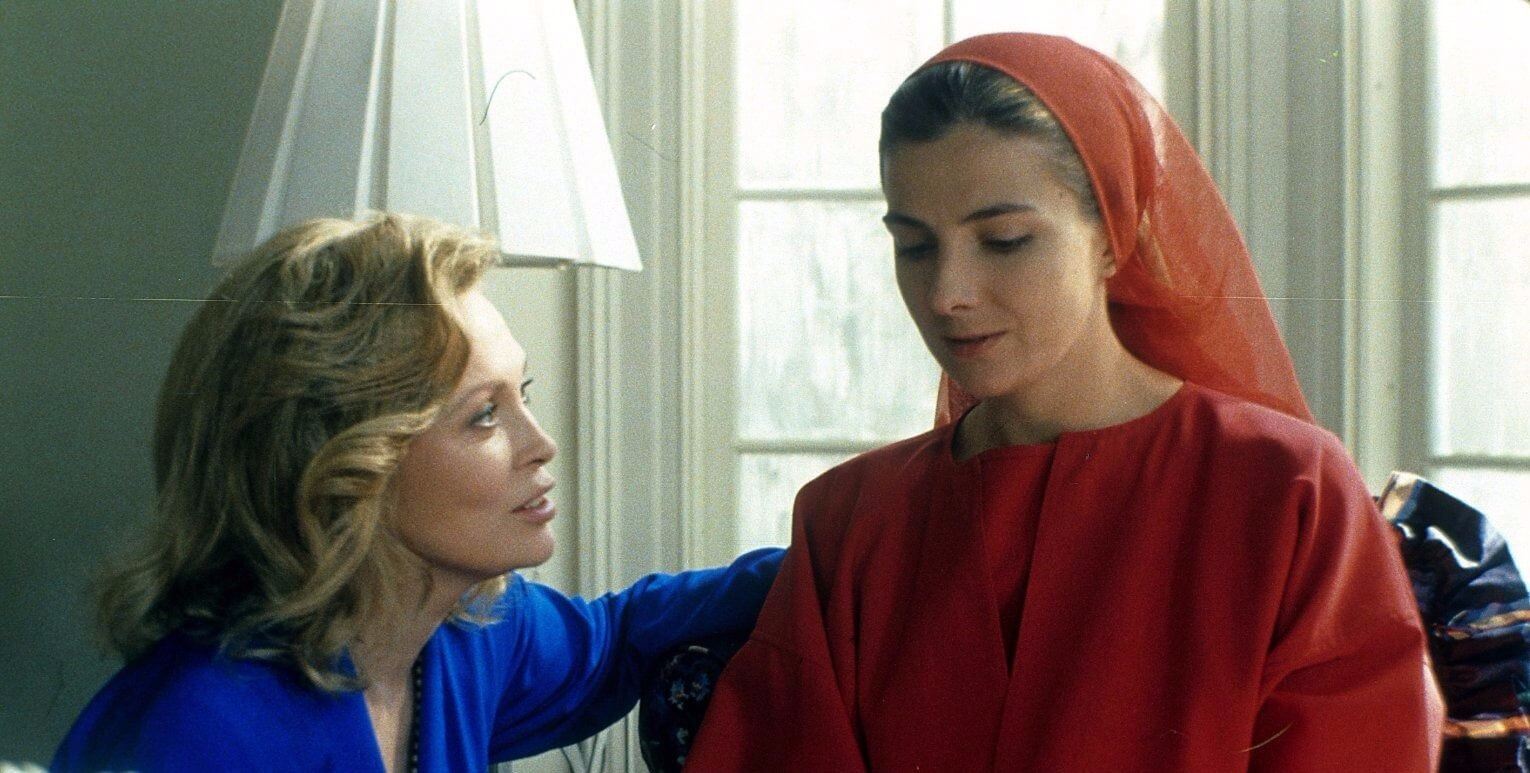The Handmaid’s Tale [1990]: Since the Hulu series of The Handmaid’s Tale has been released, I thought the first adaptation directed by Volker Schlondorff was worth a watch. For those who haven’t read the book or watched the series (DO IT); the story is set in a fictional Gilead – a totalitarian religious-extremist state that has overthrown the US government. It’s a 1984-style world that feeds on fear, distrust and – focused on most chillingly, the subjugation of women.
Gilead gone wrong. We follow the story of a handmaid – Offred (played here by Natasha Richardson) – and her perspective of the stifling, controlled world that is now everyday life for women. The premise of the story itself is thrilling and horrifying, and yet, in this movie, Gilead is bland. It could be the 27 years since its release that render the muted, pastel-and-beige stylistic features so watery, but the militancy and fear that is dispassionately and unnervingly described in the novel is missing. Take Aunt Lydia (Victoria Tenant); in the novel, she is one of the first representatives of Gilead we meet – she is terrifying in her zeal and brutality. In the film, she seems no more terrifying than a testy school headmistress. Schlondorff has cut out a few key scenes that emphasize the rage and underlying tension of both the protagonist and the menacing new world she lives in, and the effect is…meh. Richardson herself has not managed to embody this either; Offred is an intelligent woman who has had her independence and self-determination stripped from her – there’d be just a little bit of something twitching under the surface, but instead, Richardson plays more a wide-eyed, Bambi-esque innocence that doesn’t suit the character. I think that the balance of passivity is where this film fails. True, there is forced passivity, where women have to keep their heads down and legs open to avoid something worse. But in Atwood’s novel, there is wry humor, a sense of irony, a bubbling rage in Offred’s detached description of her life that makes it bearable and relatable.
The sex sells, but the irony doesn’t. Sex is a focus in this film – but not always for the right reasons. It’s an important and complicated theme in the story, but it seems as if Hollywood sensibilities took over for a while here in an effort to commodify the story. Just take a look at the film’s main image used for marketing – sex is used in its most commercial sense to market this film – woman as an object of desire – it kind of represents everything that Gilead wanted to suppress, though whether this irony was on purpose is questionable. The “ceremony” is probably the most important scene in the story for emphasizing the quiet brutality and misogynist power that subjugates women in Gilead – forced rape under a religious pretext. This scene is done well in the film; the act between the Commander, Serena Joy, and Offred is intensely discomforting not only because of its content but also because it should be perceived from Offred’s point of view. In a sex scene, audiences are usually shown women as an object – of pleasure, desire, whatever. But this is Offred’s nightmare, and we experience it with her, and this voyeuristic change is almost as shocking to us as the rape itself. Sadly, the film’s integrity towards Offred’s experiences only goes downhill from here. Though Robert Duvall’s portrayal of the Commander is masterful in representing the misogyny of powerful men in this dystopian world (and the comments made on our society), it is the relationship between Nick (Aidan Quinn) and Offred that proves problematic to the story. It seems constructed for the cinematic idea of sex rather than serving a narrative purpose. Maybe it’s the lack of chemistry between the two actors, but rather than giving Offred a sense of agency and rebellion in consensual sex with Nick - and forcing us to question what Nick represents in his position of masculine power versus Offred’s use of him as a source of human contact - it puts Richardson right back in the ‘woman as object’ role, using the tropes of a typical romantic scene – perhaps to gratify audiences? The irony here can’t have gone past the filmmakers, surely.
Worst of a bad bunch. I want to say that this is an admirable attempt at a huge story – huge in the sense that there is so much to explore and describe. The fact that the filmmakers tackled such a feminist story in an era where Pretty Woman, Die Hard 2 and Kindergarten Cop were the highest grossing films, makes me so want to praise this film on its boldness. But the boldness dissipated as soon as they decided to do it. Attwood’s novel seems made for the screen – yet there are subtleties and tensions that if missed, can bring the entire film down. This film hints at the horror, discomfort, and brutality that is quietly played out in Offred’s closed-in world but never fully is able to represent it adequately. Hulu’s recent series proves that you can play out all these tensions – maybe it’s the freedom of a small-screen series or the fact that 2016/17 sees the global rise of a new brand of outspoken feminism or the ratio of women in production/direction roles. The sense of horror and quiet rage is more palpable because it’s made by women who can imagine it.
If you want a lesson in how not to adapt a best-selling book, this is it.

